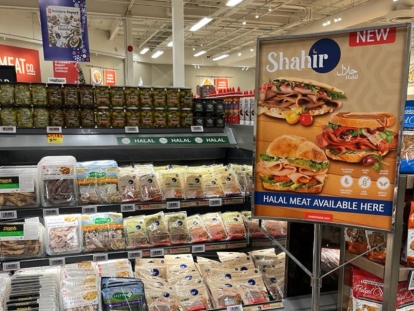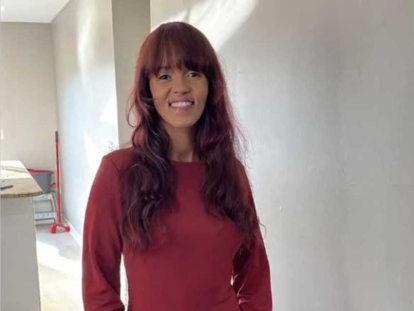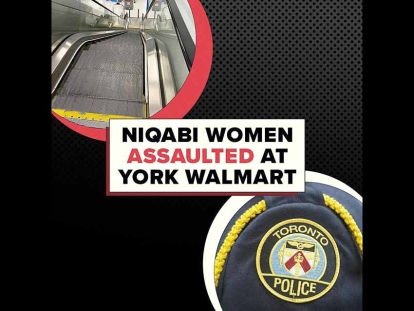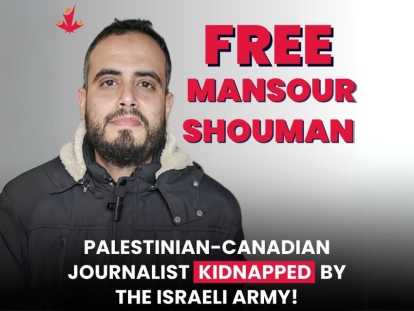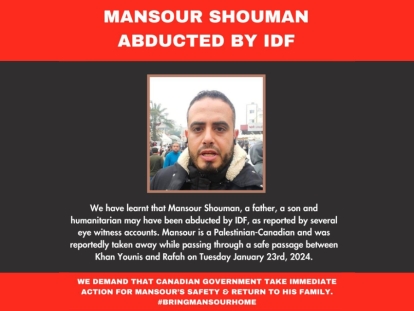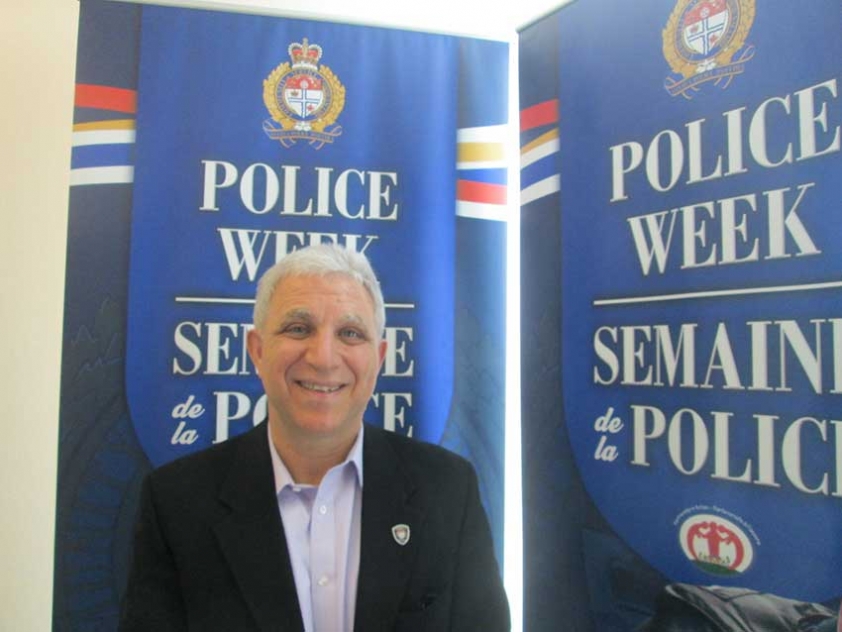 Palestinian Canadian Hamid Mousa is the Community Development Coordinator for the Ottawa Police Service.
Chelby Daigle
Palestinian Canadian Hamid Mousa is the Community Development Coordinator for the Ottawa Police Service.
Chelby Daigle
May
Hamid Mousa: From Palestinian Refugee to Community Developer with the Ottawa Police Service
Written by Chelby DaigleAfter years of working in community development and youth engagement across Ottawa, Hamid Mousa has been working with the Ottawa Police Service (OPS) since 2008. Currently the OPS Community Development Coordinator, Mousa, a Palestinian Canadian, began as a refugee to this country.
Over the last 20 years, as Ottawa has become home to many immigrants and refugees from Africa, the Middle East, and South Asia, there have been many dramatic demographic shifts in several Ottawa neighbourhoods. Mousa has been at the forefront of some innovative projects which have aimed to build trust and understanding between these newcomer communities and the Canadian mainstream.
His own life journey as a refugee to Canada has helped him to work effectively as a bridge-builder between institutions, such as the police service, and newcomers to Ottawa.
Tell us about your life before you came to Canada
I was born in Ramallah, in the West Bank. My family lived in a refugee camp just outside of Jericho but my grandfather lived in Ramallah so during the summer, my mother would take us kids to stay with him because the climate was better so I was born there. My parents originally came from a village about 8 km from present day Tel Aviv but fled during the 1948 war. When I was around 7 we fled to Jordan during the 1967 war.
It’s kind of a funny story. They woke us up and told us we had to go, just pack a change of clothes and let’s go, but I was sleepy so I just went back to sleep. My family had walked 2 km before they noticed me missing. Keep in mind I was number 11 of 12 kids. Fortunately, one of my oldest sisters, Sarah, said ‘Dad, stop, let’s count everybody.’ So when they started counting they realized I was missing. So my father and one of my older brothers went back to get me. I was still asleep so my brother picked me up, put me on his shoulder and off we went. We traveled to Jordan in my uncle’s tractor trailer with about five other equally large families. We were packed like sardines.
There was a lot of political instability in Jordan. My parents made the best out of a difficult situation. We attended UN schools until Grade 9, then we went to government schools to finish high school.
How did you come to Canada?
I first came to Canada to study Grade 13 in 1978. At the time in Jordan there were very limited post-secondary institutions and if your average wasn’t in the 90s—forget about it! One of my brothers lived in Toronto and he enrolled me in Eastern College, a private school. I expected to have a chance to get to meet ‘mainstream Canadians’. Then I went to that school and there were 234 students, myself, 3 Indians, and the rest were all Chinese! That was a bit of a shock but it was a great experience. The city was also a shock because I came from Jordan which at the time didn't have buildings taller than five stories, to Toronto with the CN Tower!
After serving a two year mandatory military service in Jordan, I returned to Canada in 1985 and applied for refugee status which I was lucky to be granted. I wanted to further my education so I studied in Algonquin College’s Recreational Leadership Program while working full-time in a restaurant. I eventually began working as a youth worker with the Children’s Aid Society (CAS) in 1989. I even worked for a year as a resident youth worker in a group home which was an experience by itself.
Why did you decide to pursue a career in social services?
I have to give the credit to my father. My father only went to school until about Grade 6, but my father was known around the neighbourhood as ‘the problem solver’. I was always in awe of how people came to him for help and how he was able to gain their trust.
How did you move from youth work to community development?
I worked with CAS for seven years and then the Progressive Conservative government of Mike Harris came to power provincially and there was a huge layoff. I was one of the 200 people laid off.
I then worked with the Ottawa Carleton District School Board as an itinerant youth worker in different schools. This provided me with a great opportunity to develop my network in the community.
In 1999 the City of Gloucester and the police there began a pilot project called Youth on the Move for the summer. There was one youth worker, myself, and one police officer and we had a van to drive around the community to address concerns about youth and crime in the area. We did a lot of work connecting with people in Jasmine Park and Cummings Park. That is where community development really got into my head.
Nobody expected us to connect with the rest of the community, nobody expected us to be able to go to the park and engage the youth. We not only did that but we also engaged their parents, we went to the stakeholders in the community, we brought together parts of the community that had never come together before. It was amazing to see the transformation. They collected the stats and for that one summer, the calls for service in that area went down by 40%. I loved working there. We organized an end of summer BBQ. We spoke with some of the community members and suggested that we would be happy if they brought something for others to eat. We didn’t expect people to bring much. Well, there was a lineup of about 12 Somali women, each one carrying a tray bigger than I am!
From there I got a job with the Nepean Community Resource Centre as a Community Developer working in the Bayshore area. I have to say that Bayshore is my favourite spot in the city to work. I built such a great network there over the years. I remember I used to walk through the community and so many people would say hi and it was so genuine, not because they were looking to get something out of you. I had such a great time working there.
I worked on the Millennium Youth Challenge, funded by Canadian Heritage. Youth from across Canada were challenged to put together teams to address racism. I had two teams going, one from Bayshore and one from Barrhaven. The Bayshore team won the challenge for all of Ottawa and our group got to travel to Yellowknife and Edmonton to do presentations for communities there. We were paired with teams from Australia and Washington D.C. After that, 3 members of the team were selected to go to an anti-racism conference in Germany. Then Wasif Islam, the lead on my team, was sent as the representative for all of Canada to the United Nations Conference on Racism in Durban.
I am so proud of those young people. All of them went on to get their education. They were really great community organizers. We were struggling as community developers to get 40 people out to an event, but when the youth organized an event they had over 300 people!
I went on to work with Big Brothers and Big Sisters. Then I became the community developer for the Hunt Club Riverside Community Resource Centre. I eventually became the Executive Director there.
How did you end up working with the Ottawa Police Service (OPS)?
I had volunteered for a number of years with the Critical-Incident/Critical Situation Team with the Diversity and Race Relations Section of the Ottawa Police Service. I was hired as their Community Development Coordinator in 2008.
Do you feel that your own experience as a refugee to Ottawa, which has a relatively large refugee population, helps with your work with the OPS?
We are made by our experience. The type of lives we live qualifies us to understand things in a different way. I know what refugees are talking about because I went through it. I was awaiting a court decision worried that tomorrow I might be deported. I went through the time where I was desperate to work but I couldn’t and didn’t have enough money. So those things build your character and when you have lived through these situations, you have a different outlook on life.
What do you do on a daily basis in your work with OPS?
The real mandate of the Community Development Section is to build sustainable partnerships and relationships with the community at large, with community leaders, with stakeholders, with associations and organizations in order to address this issue and find solutions. How does that manifest itself? Well, you need to have the connections within the different communities, within the community associations, with city officials, and internally you need to connect within the different police sections in order to bridge the gap in understanding between the community and the police as they are in many ways quite distinct cultures.
Community development is a long term process. You sow the seeds, wait for things to develop and take care of them as they grow. Community Policing means creating an understanding of both the community issues and the policing issues and working with both sides to find a common ground to move forward on.
Our section works directly with the Chief’s office. We work on initiatives identified as priority issues by the Executive. We also respond to trending issues, honour-based violence for example. We do research, we do interviews, we collect information, we identify community partners, we organize forums so that members of the police could be better informed on the issue and bring in community organizations to share their knowledge and understanding and build partnerships with them.
We also do all of the community consultations for the police. It could take up to six months to organize a community consultation properly because you need to develop a communication strategy, an outreach strategy, you need to identify who to invite, what are you going to ask them, how are you going to make it interesting for them, what are you going to feed them!
Community development is really multifaceted. You need to have knowledge about many different things or have connections with the right people so you can bring them in and they can share their expertise.
You are currently working on the issue of radicalization. Tell us more about what that involves.
An issue of that magnitude can’t be looked at from one angle. It is a very complex issue. You have to understand the history, the context, the root causes, what leads someone on the path of radicalization. If we understand these things it makes it a lot easier for us to address it.
If you ask someone who their role model is, it isn’t likely going to be a police officer it will more likely be a mother, a teacher, a social worker, a friend, a neighbour and that’s why when we talk about radicalization it has to encompass the whole community and the police is just one element. We need to surround our young people with a lot of resources and positive role models.
And that’s where the discussion on Islamophobia comes in, people have a tendency to generalize because some Muslims are committing acts of terrorism and this is affecting the whole community. We can’t talk about radicalization if we don’t also address racism and Islamophobia. We have a great opportunity if we could bring this understanding into anti-racialization work. It is necessary for building trust between law enforcement and Muslim communities so we can work together to combat youth radicalization.
What initiatives would you like our readers to learn more about?
The Traffic Stop Race Data Collection Project is definitely something your readers should know more about. It is of great importance because it is about addressing racial profiling and improving the relationship between the police and the community at large.
There is also ongoing work between community police officers and community developers at resource centres across the city.
Also, look out for a new project launching soon called the Merit Program.
Ottawa, since the beginning of 2015, had 3 homicides for a city of a million people. We are very fortunate that we live in a very safe environment. But we can always do better and we can’t lose perspective on that. The community has a very important role to play in making sure our city stays safe.
You mentioned 2015's three homicides. All were young people, two were from Muslim backgrounds. There is concern that the children of refugees are at high risk of joining gangs in Ottawa, and we have already seen a number of refugee youth, particularly from the Muslim community, lose their lives in gang violence over the years. What are your thoughts on this?
Being refugees, you don’t come here under the best of circumstances. There are war trauma issues that people are dealing with, families have been split up so there is often fatherlessness, and there is poverty, lack of education, lack of opportunities. All of these things get compounded when you are a youth and there is a lack of role models. You don't often get to have a childhood, the sort of childhood every child deserves. Couple that with global issues of oppression, when you come from a war torn country and you don’t know what is happening with your extended family, hearing that some have been killed, hearing that some have been put into detention, the frustration that comes with that and add in issues of racism and discrimination here in Ottawa. This is why refugee youth are at so much risk.
You were nominated for the first round of Canada’s Top 25 Immigrants, so you were one of 75 immigrants Canadians could choose from for the final 25. How do you feel about that?
I don’t know who nominated me. Someone got in touch with my son and got all of the information from my son. And my son won’t tell me who it is. I would be lying if I didn’t say I was humbled and very proud. It is very satisfying to see that someone has recognized the work that you have done. Coming from the background that I came from and reaching to where I am now, it is phenomenal and I don’t think I would have had the same opportunities in Jordan.
So you are a Palestinian refugee who has gone on to be recognized for your contributions to community development in Canada. But many refugees in this country struggle to have the opportunity to reach their potential and find fulfilling careers. What advice would you give to them?
Don’t ever stop. There is always a chance and you can make your own chances as well. If I told you it would be easy, I would be lying to you. But you need to just take it one step at a time, and you overcome it one day at a time, because you never know when an opportunity will be open to you. You really need to keep up that hope because if you lose hope, you just defeat yourself. For young people, please pay attention to your education! I have college and I have succeeded with that, but if you have a higher degree more doors will be open to you. You may struggle at the beginning but getting your education will pay off.
Follow Hamid Mousa on Twitter here.
This article was produced exclusively for Muslim Link and should not be copied without prior permission from the site. For permission, please write to info@muslimlink.ca.

